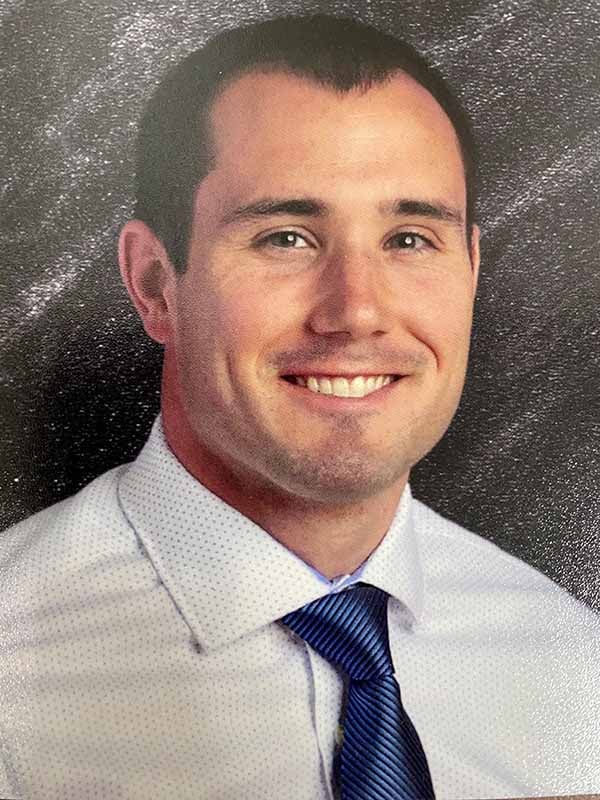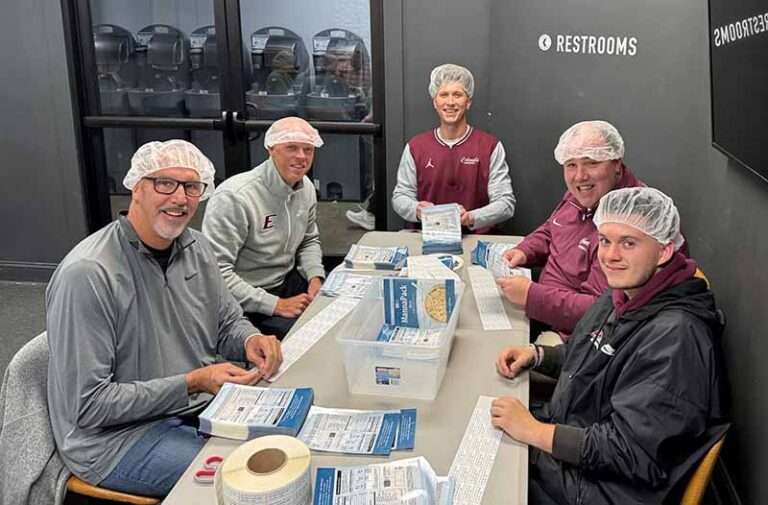A bill that would overhaul education and accountability standards in public schools passed the state Senate by a 25-12 vote Wednesday.
The measure, designated Senate Bill 1, outlines a process to review, and possibly change, what students are taught – and how they’re tested – in key subjects such as English, mathematics, science and social studies. Sen. Mike Wilson, R-Bowling Green, who introduced the legislation, said the goal is to align what is taught with what is tested.
“What we have before us is a bill that I sometimes call, ‘Let the teachers teach bill,’” he said. “I couldn’t agree with that more today than I did the first day … I heard it.”

He questioned the results of Kentucky’s current education and accountability standards. He said an Office of Education Accountability study found the percentage of Kentucky graduates entering post-secondary education hadn’t perceptibly increased in the last six years.
“Over the last six years the state has used three different formulas to determine graduation rates,” Wilson said. “Each one yielding a higher measure making it difficult to genuinely determine growth. It’s like if we wanted the Kentucky basketball team to score a little higher we just move the three-point arc in a little bit more.”
Senate President Pro Tem David P. Givens, R-Greensburg, also spoke in support of SB 1. He said the bill would replace a school’s self-evaluations called Program Review with a requirement for the principal, school-based council and superintendent to sign a letter of assurance about arts and humanities, practical living, writing and social studies.
“Through this self-assessment process we call Program Review, we’ve caused districts and schools to chase points,” Givens said of the current system.
Sen. Brandon Smith, R-Hazard, explained why he voted against SB 1.
“I like many of you are held accountable by the people back at home that elect to send us here,” he said. “… The folks at home are not supported of this particular piece of legislation.”
He said the emails, phone calls and messages left at the legislative hotline from his constituents are disproportionately against SB 1.
Sen. Reginald Thomas, D-Lexington, said he voted against SB 1 because it would create an academic standards committee consisting of three gubernatorial appointees, six legislators and the commissioner of education.
“What this bill does is politicize our public education,” he said. “It threatens our students’ ability to have the free expression of ideas. In other words … it will probably lead to politicians controlling the content of what our students learn. That is very dangerous and a real threat to democracy.”
Sen. Robin L. Webb, D-Grayson, said she voted against SB 1, in part, because it would allow high school students to use credits from foreign language, voc-tech or computer classes to satisfy course requirements in the arts and humanities.
“Arts and humanities requirements being substituted for some of the things in this bill causes me a great deal of indigestion,” Webb said. “… The arts are the lifeblood of many students. The arts are what keeps many students in school. I don’t remember much about calculus but I do remember what I learned in band and my appreciation for music.”
Sen. Max Wise, R-Campbellsville, who was the last Senator to cast a vote because the roll call was taken in alphabetical order, explained why he supported SB 1.
“One thing I think that we have missed today also on the Senate floor is the students,” said Wise, a professor at Campbellsville University. “I think a lot of times we have gotten into discussions today talking about the politics. And we have talked about the teachers.
“ … I listen to the students when they come to my classroom.”
He said the over-burdensome amount of paperwork teachers have to fill out and “teaching to a test” are what his students recognized as problems they experienced in school.
“We are failing our students in so many aspects,” Wise said. “ … I think we really need to reevaluate some of the discussions today and think about how this bill is going to let the students learn and allow the teachers to teach.”
The bill will now go to the state House of Representatives for consideration.
Senate committee passes midwives bill
The state Senate Committee on Health and Welfare passed a bill Wednesday that would create a board to license midwives in Kentucky.
Sen. Tom Buford, R-Nicholasville, who introduced the legislation known as Senate Bill 85, said the need for it was brought to his attention by midwives who felt a state license would help legitimize their profession and bring further safeguards to expecting mothers.
“It is not illegal to have your child at home or, as we obviously see in the news, in a taxicab on the side of the road or police car or emergency vehicle,” he said. “This happens all the time. This is nothing new. This has been going on since Adam and Eve.”
Buford said SB 85 would advance public safety because it ensures families who prefer out-of-hospital births will have access to qualified care providers. He added that Tennessee, Missouri, Virginia and Indiana have similar laws.
SB 85 supporter Robin Elise Weiss testified that home births would save tax dollars because about 50 percent of births in Kentucky are covered by Medicaid. She said of the 56,000 babies born in Kentucky in 2014, 20,000 were delivered by cesarean section – a medical procedure that adds, on average, $3,700 to a hospital bill.
“It brings professionals together for the health and welfare for Kentucky’s birthing families – the most venerable populations in Kentucky with responsibly, accountability and professionalism on all parts,” said Weiss, who teaches at the University of Louisville School of Public Health and Information Sciences. “Currently, home births is an underground marketplace. If you want a midwife, you need to know who to talk to. You can’t go to any respected health entity and ask for a list of vetted professionals. You have to rely on word of mouth.”
Sen. Alice Forgy Kerr, R-Lexington, voted in favor of SB 85.
“As one of the three members of this committee that has given birth, I think this is a great bill,” she said. “I think it is an opportunity for women and their families to be able to share in what should be a 99.9 percent natural occurrence. It is not a disease we are trying to cure here.”
Sen. Reginald Thomas, D-Lexington, said he voted for the bill because he believes it would increase the rate of breast feeding in Kentucky.
“Midwives are some of the top proponents … of breast feeding,” he said.
SB 85 will now go to the full Senate for consideration.
Teacher planning-time bill clears House, goes to Senate
Public school teachers would be given at least 60 minutes per school day for lesson planning and other “nonteaching” activities under a bill that passed the Kentucky House.
Current law says teachers must have “additional time” for nonteaching activities, like planning and reviewing student work, but allows school councils and school districts to determine how much time the teachers get. Under House Bill 107, schools would have to set aside 60 minutes per day period for full-time teachers, with at least 120 minutes allotted to teachers each week for “self-directed” activities like planning, professional development, and outreach.
“This is just to ensure that teachers do have time that they can decide how (to) use,” said Rep. Rita Smart, D-Richmond, who is sponsoring HB 107 with Rep. David Hale, R-Wellington.
Smart said schools can adjust their instructional time to accommodate the proposed nonteaching periods by altering the length of the school day.
“In Madison County we have nine elementary schools and all of them have different start and stop times, so that’s how they (meet their needs),” said Smart.
Rep. Kim King, R-Harrodsburg, challenged the bill on the floor. King said her school-based decision making councils say HB 107 would usurp some of their authority under state law.
“Each of my school-based decision making council members at home consider this undermining their authority,” said King.
Rep. Jim DuPlessis, R-Elizabethtown, said both he and school superintendents in his area are concerned about the cost of HB 107. He said that while HB 107 it is a “good-intentioned bill”, he and his school officials are concerned “there will be more teachers needed, especially in the elementary grades.”
Smart said the bill would not affect instructional time and therefore would not require more teachers. It allows for “self-directed time” when, she said, a teacher decides what he or she has to get done.
HB 107 passed by a vote of 77-17 and now goes to the Senate for consideration.
From LRC Public Information

















